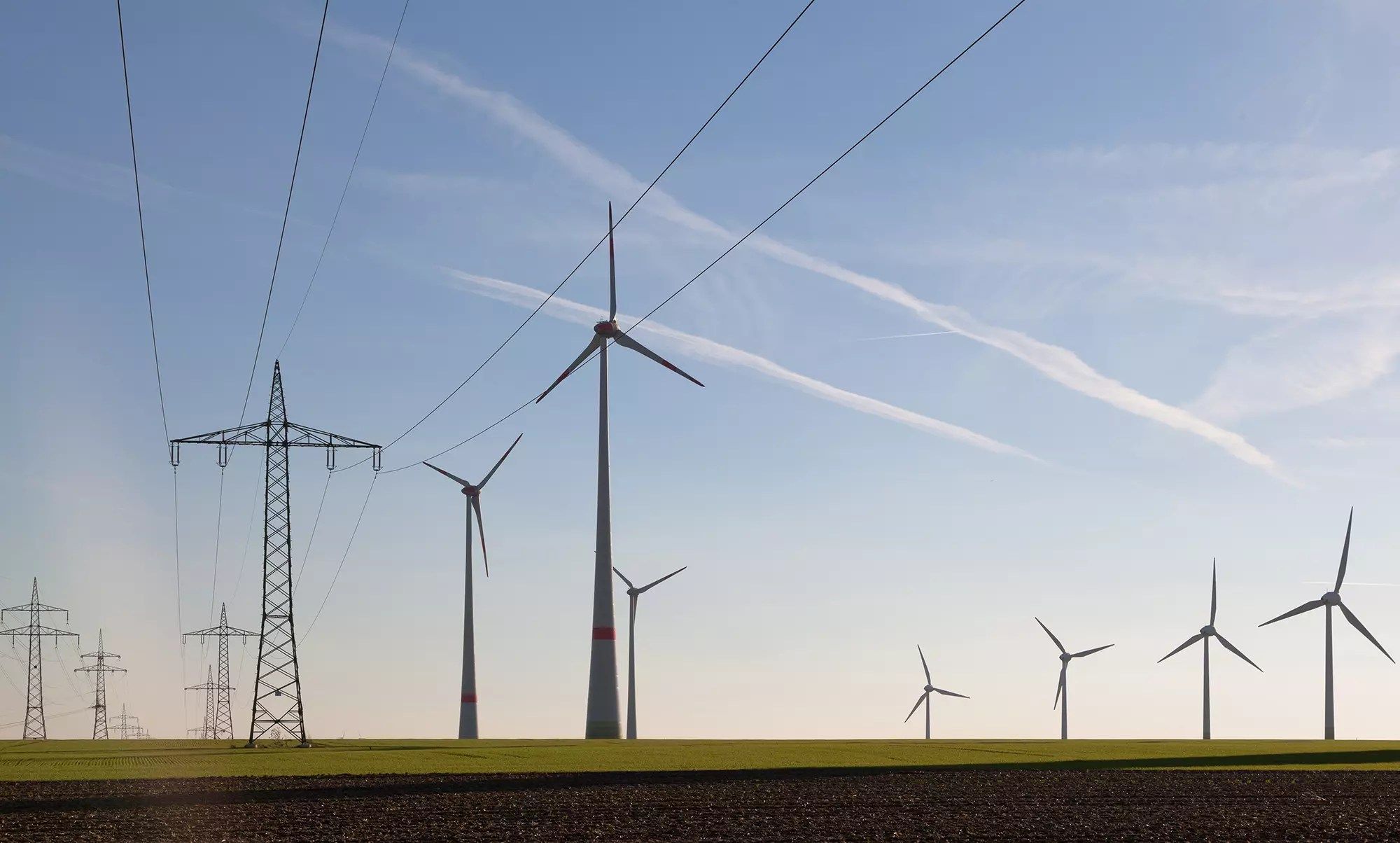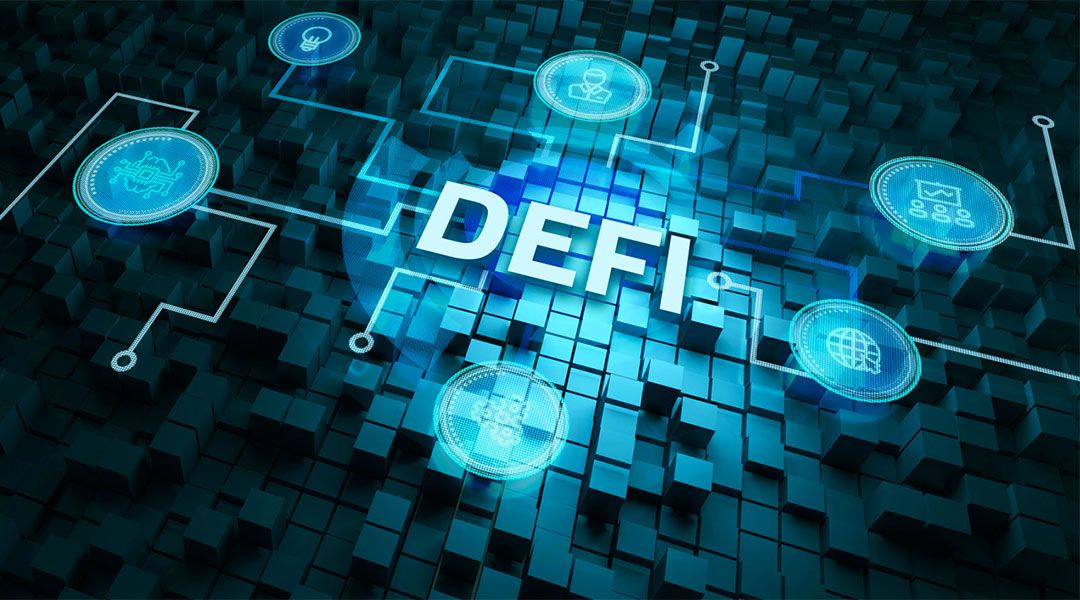How Blockchain Can Help Combat Climate Change

Blockchain technology will enable us to decentralise the web and decentralise many, if not all, the services that are offered via the web. A decentralised internet was how the internet was originally envisioned, but somehow in the past 25 years, it ended up in the hands of a few very powerful companies. As Sir Tim Berners-Lee said during the Decentralised Web Summit in 2016:
“The web was designed to be decentralised so that everybody could participate by having their own domain and having their own webserver and this hasn’t worked out. Instead, we’ve got the situation where individual personal data has been locked up in these silos.”
Fortunately, Blockchain will allow us to bring back the power to the users and to create a decentralised society. Already, Blockchain challenges many industries, of which the financial industry will see the largest impact of Blockchain in the coming years. The question, however, is how Blockchain will have an impact on other global problems. In a new series of Blockchain posts, I will dive into different problems we face and see if and how the Blockchain could help solve these issues. I will discuss problems such as climate change, poverty, refugee crisis, voting fraud, censorship or even super artificial intelligence and see how Blockchain can be involved in a possible solution to these challenges. Please let me know in the comments if you have more areas that should be looked at.
This first post will be about if Blockchain can help combat climate change and if so, how a decentralised solution for climate change would work. With Trump nominating more and more climate change sceptics in his government, there is little hope that the USA will continue to play the increasingly important role they took under Obama. So we need a solution that does not rely on governments. Fortunately, the tech world is stepping up, with several billionaire tech founders, including Bill Gates, Jack Ma and Jeff Bezos creating a $1 billion clean energy venture fund for startups that focus on combating climate change.
Traditionally, energy production and distribution have been very centralised. Large corporations invest billions of dollars in energy creation from either fossil fuels or renewable energy sources. The distribution of that energy is done by centralised, often government owned, grid companies. These companies move energy around the globe and determine the pricing for it, which has an impact on the world economy; if the OPEC decides whether to reduce or increase oil production, it has an impact on everyone. However, energy production is moving away from a centralised approach to a decentralised approach, thanks to new startups and new technological breakthroughs, such as the solar energy roof tiles from Elon Musk or the advancement of smart grids.
Clean energy tech offers a lot of opportunity for dealing with climate change, and it appears that Blockchain could play an important role as well. There are multiple startups and research initiatives that try to understand how Blockchain could create new ways of dealing with carbon emissions and pricing, smart grid management or energy data analysis. Blockchain enables custom, decentralised value flows and that will benefit each of these energy-related aspects.
Carbon Emission and Energy Trading
Carbon emissions are what causes climate change, and the carbon footprint is defined as the total set of greenhouse gas emissions caused by an event, organisation or country. To limit these emissions, carbon pricing was invented, which is a certain amount of money that has to be paid for the right to emit one tonne of CO2 in the atmosphere. These rights can be traded if your organisation has many of these rights left or if an organisation is emitting more carbon dioxide than allowed. These rights and carbon assets are traded on marketplaces, and as such, Blockchain can be used to improve this system.
Currently, IBM and Chinese Energy Blockchain Labs are working together to develop a blockchain marketplace for trading carbon assets. The objective is to make it more efficient to develop and manage carbon assets and as such reduce carbon emissions. Also, recording carbon assets on a public blockchain will offer transparency and will ensure that transactions are valid and settled in minutes.
Next to carbon assets that can be traded on the blockchain, an Australian startup is developing a peer-to-peer renewable energy trading platform, using the blockchain. The company, Power Ledger, enables consumers to buy, self, or exchange excess renewable electricity, directly with each other. This works via tokens, for example, a crypto coin, which are tradeable digital assets representing a certain energy production. These can be sold to others via the blockchain to prevent double spending and to ensure valid transactions. As such, Blockchain enables Power Ledger to offer a transparent, auditable and automated marketplace, which settles and clears transactions between consumers in minutes, without the need for a trusted third party. This will make it more interesting for consumers to also start creating and selling their renewable energy.
Smart Grid Management
Smart grids are the future of energy, and they offer tremendous advantages over traditional energy grids. In addition, smart grids are actually necessary, if the electric car revolution continues, which it will. If all car owners come home after work and plug in their electric car to the grid at the same time, it will cause the current electrical grid to crash, because of the peak in energy demand. Smart grids will regulate energy demand to ensure that the grid remains online.
Smart grids will not only be required for electric cars. They will consist of billions of endpoints such as solar systems, microgrids, smart appliances, houses, etc. that are constantly interacting with each other. Blockchain can help improve smart grids, and the management of those smart grids and quite a few startups are working hard to develop a decentralised solution. UK startup Electron wants to use smart contracts on the Ethereum blockchain to develop a smart grid that will always deliver energy. Currently, they are in the testing phase, and they use 53 million metering points and data for 60 energy suppliers to run experiments.
The company Grid Singularity aims to develop a decentralised energy data management and exchange platform. This platform will enable regulators, operators, investors, traders and consumers to collaborate efficiently on smart grids. The Austrian company targets developing countries to offer them a pay-as-you-go solar energy system and they use Blockchain to authenticate energy transactions.
Samsung and IBM are also working on Blockchain solutions for smart grids. They developed a platform called ADEPT, which uses smart contracts on Ethereum to manage micro-transactions between smart appliances on a smart grid, as they autonomously react to changing grid conditions. This will improve the efficiency and operability of a smart grid, regulating the energy consumption and reduce it along the way.
Energy Data Analysis
The analyses of massive amounts of energy data can help organisations such as universities, meteorological organisations or financial institutions to gain insights from energy consumption. This information can help create new applications and reduce energy consumption.
The startup ElectriCChain is using Blockchain technology, in combination with SolarCoin, which is a crypto coin to incentivise solar electricity generation. The objective of ElectriCChain is to gather non-confidential energy data related to solar energy and they aim to build a network of millions of solar installations worldwide. They are moving towards a non-profit organisation and currently developing a dozen solar energy blockchain projects. Using the insights from the solar installations, they aim to deliver cheap and clean solar energy solutions for humanity.
A Future of Decentralised Energy
The energy sector has tremendous opportunities to be changed and improved using Blockchain technology. Clean energy tech startups are developing new solutions and applications that focus on renewable energy, reducing carbon emissions and developing smart grids that will optimise energy consumption. Blockchain can assist these startups in offering a decentralised energy solution that is reliable and effective. As such, Blockchain has a significant chance to help combat climate change as it enables the creation, usage and exchange of renewable, decentralised energy in a trustworthy and reliable manner, which will make renewable energy a lot more attractive to consumers, organisations and societies.
For an overview of different startups in the Blockchain energy space, as well as an in-depth article on the enormous potential of the blockchain for the energy industry, read this article. For those who have difficulty understanding what the Blockchain is, I recently wrote a series of five posts on what is the Blockchain:





